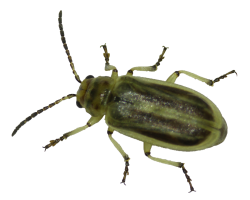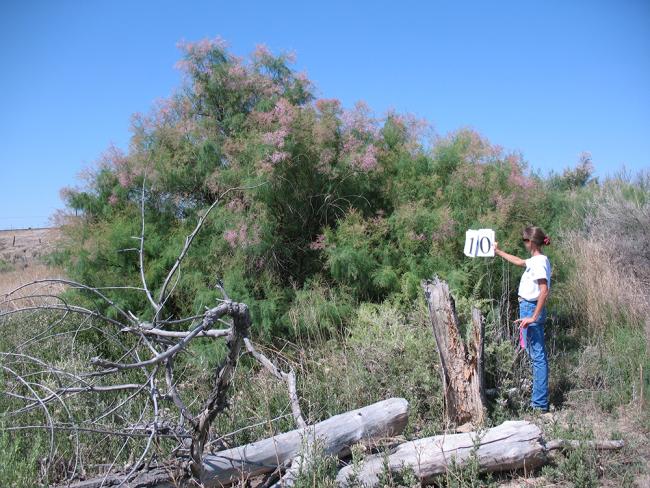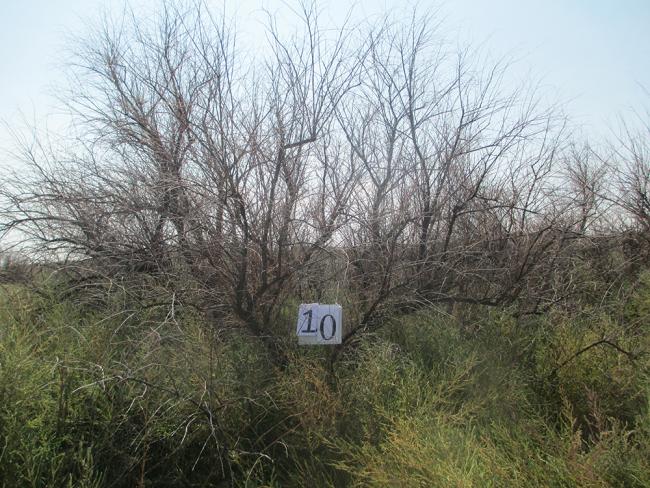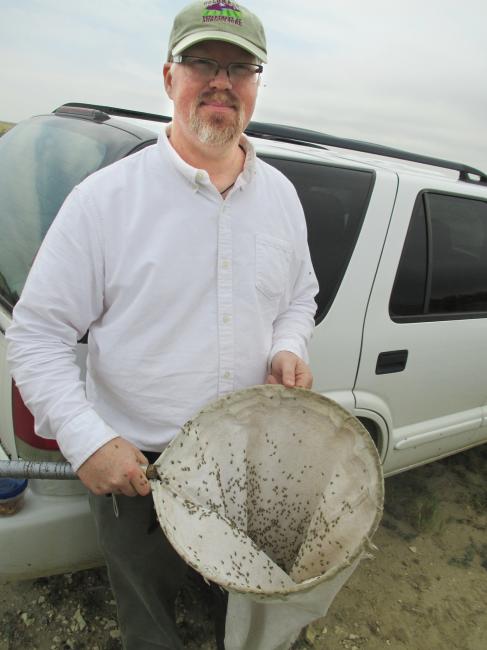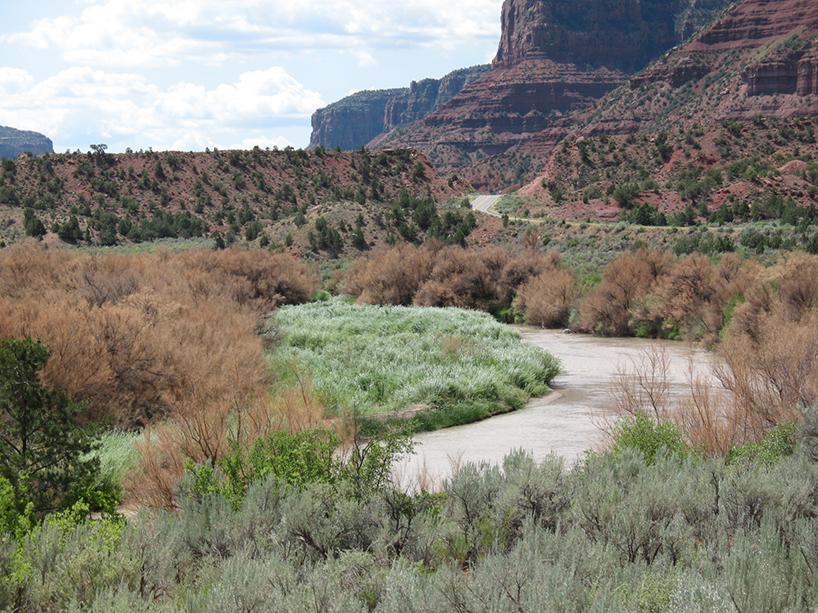Success Stories
Tamarisk
Tamarisk is an invasive shrub that takes over riverbanks and lakeshores and forms dense thickets that crowd out native vegetation, disrupt recreational use of waterways, increase fire hazards, and are difficult to control. Tamarisk is also known to use more water than native plants, especially since it forms larger and denser thickets than the native cottonwoods and willows that it displaces.
CDA began releasing the northern tamarisk beetle, Diorhabda carinulata, in 2005 and the program is now becoming a major success story in the control of this noxious and damaging weed.
The beetles are most voracious in the larval stage when they feed constantly, often defoliating large stands of tamarisk. Defoliated plants send up new growth which may again attract beetles and result in multiple defoliations. Plants don’t do well after multiple defoliations; they die back and in time may even die.
We continue to collect and release beetles in Colorado and we believe that in a few more years we’ll have tamarisk under control with the help of biocontrol.
